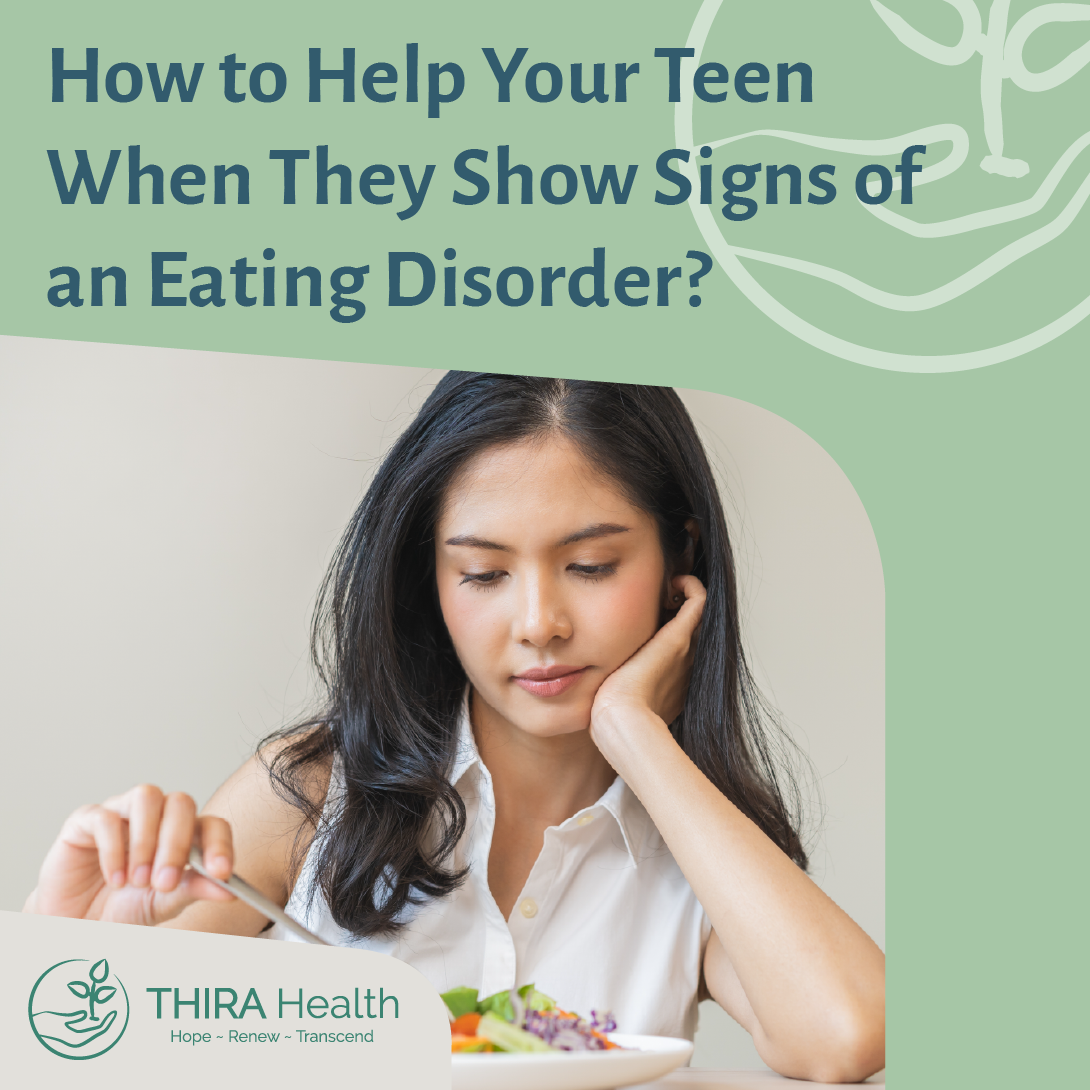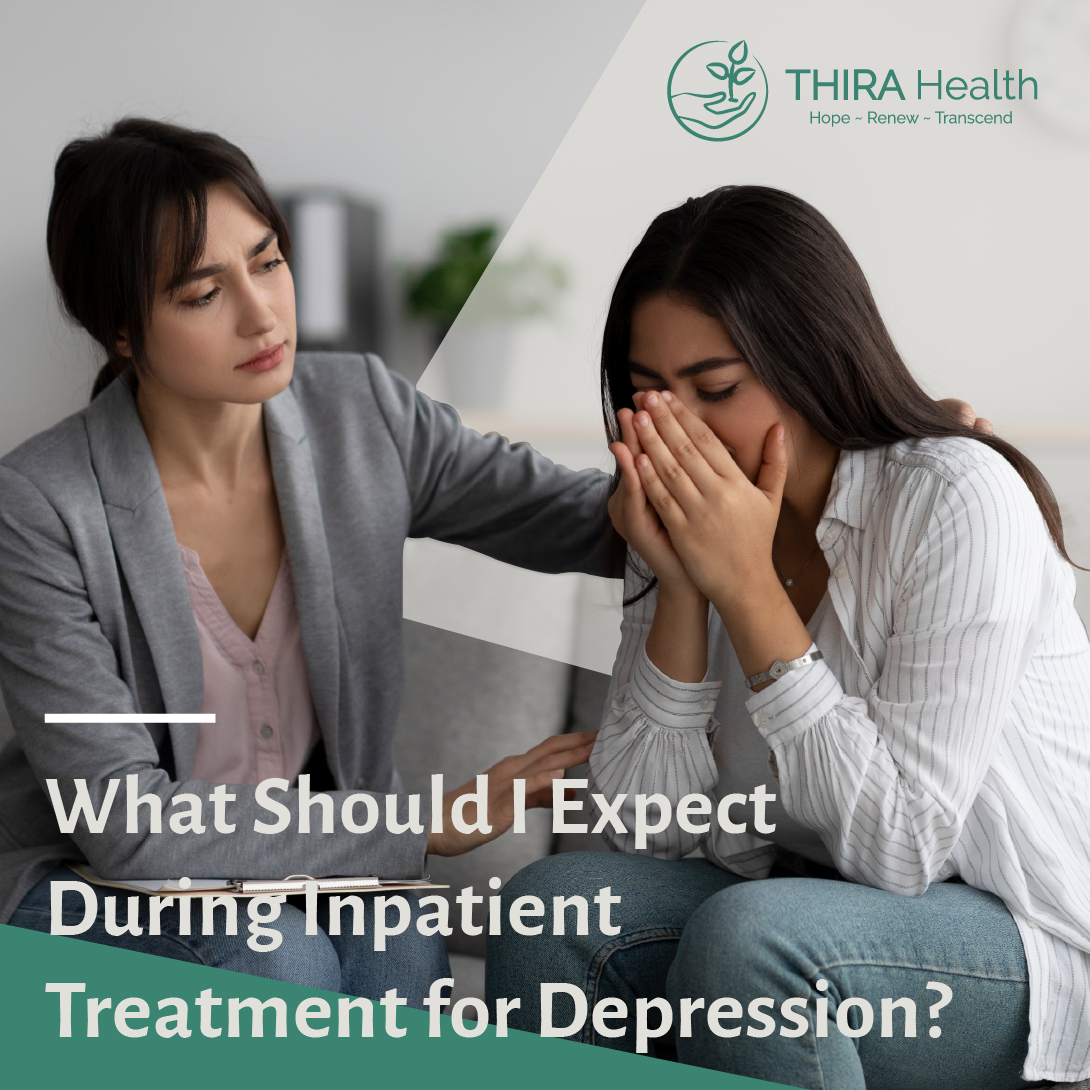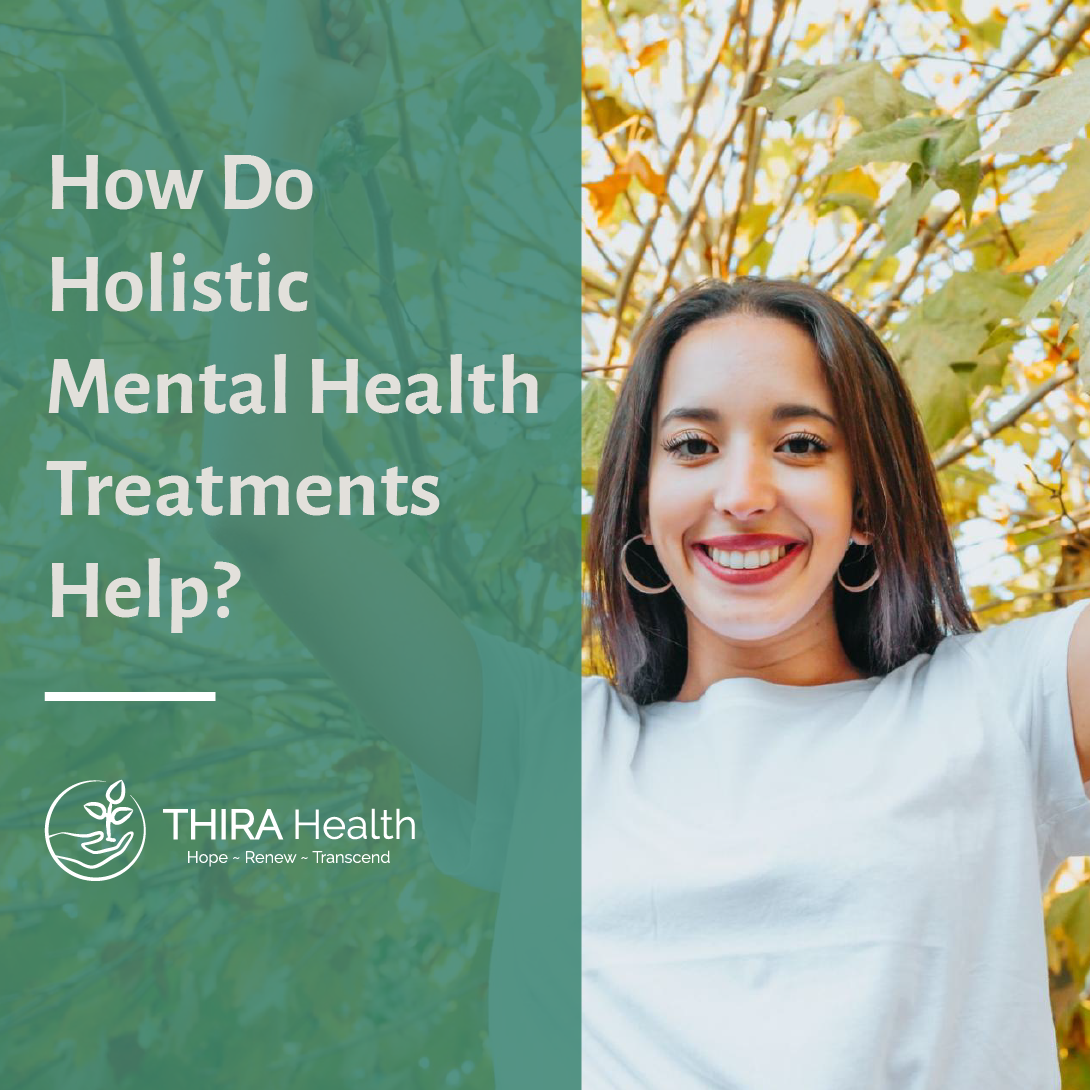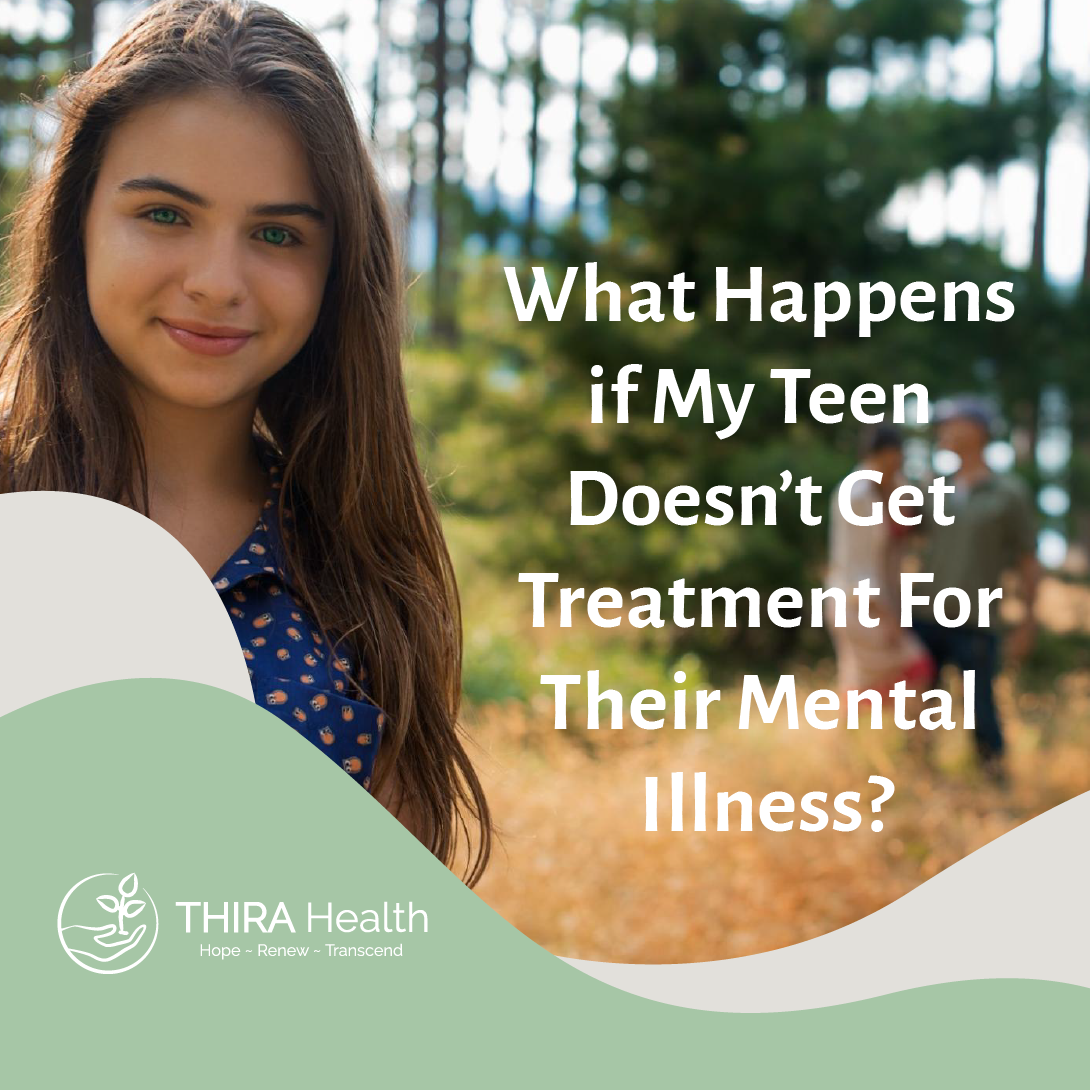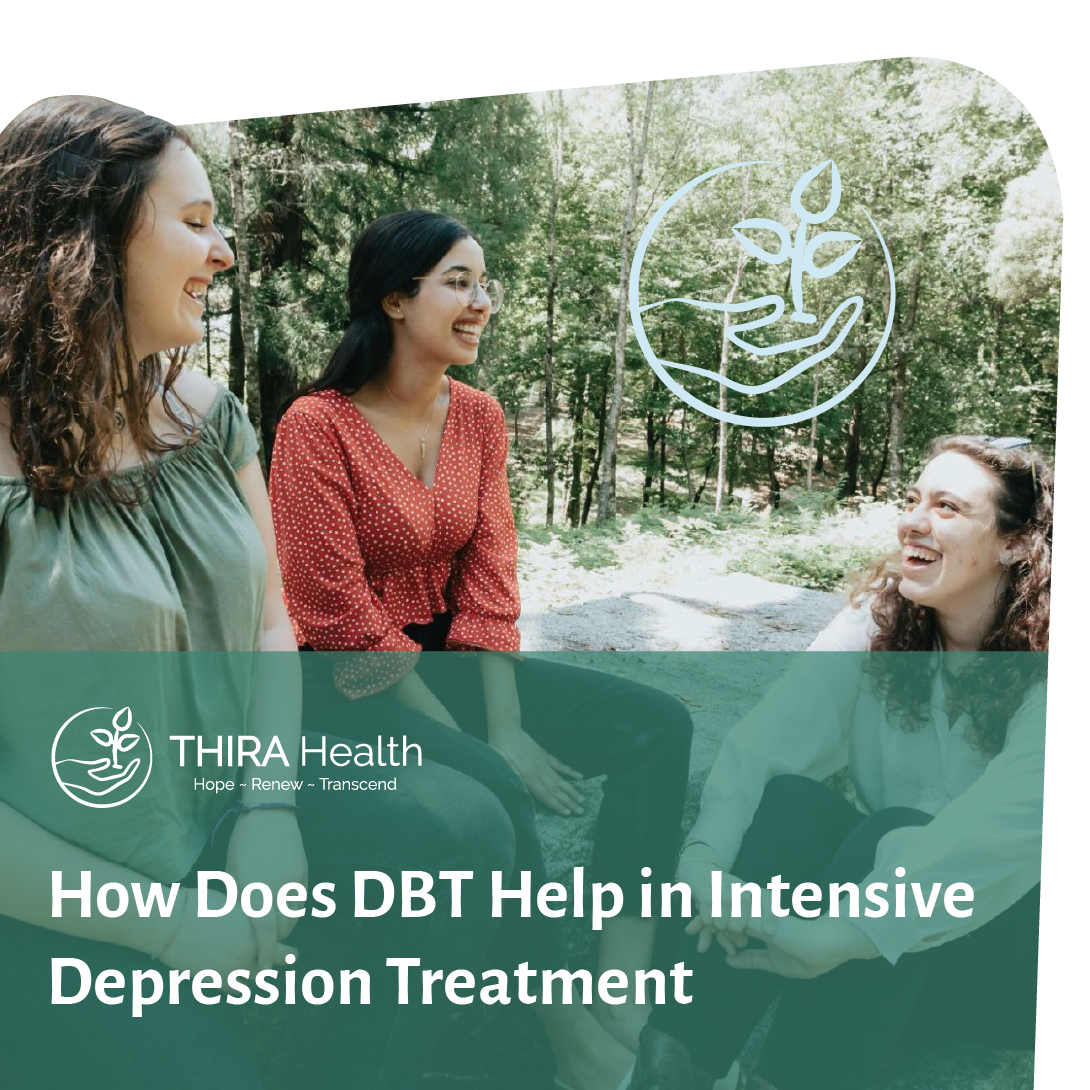At THIRA Health, our work with women, particularly in issues of disordered eating, is multifaceted. This means not only treating the whole person but remaining mindful of environmental impacts on the journey to healing.
While holidays are often filled with feelings of love, togetherness, and gratitude, they can also be filled with uncomfortable emotions such as shame, guilt, and anxiety. The traditional holiday dinners can quickly turn into a collection of ruminating thoughts, nervousness, and fear of lost control.
This article will focus not only on ways communal meals can evoke an emotional response, but also on how to best overcome and manage distress by creating internal and external support structures.
About Eating Disorders
The stigma and lack of education on eating disorders can make it a profoundly lonely experience for those living with it. This is also true when you witness a loved one struggling with their relationship with food.
Food is a necessary part of human survival. After all, we require sustenance, energy, and fuel to keep our minds and bodies sharp and strong; however, our eating patterns and relationship with food, in general, become complicated based on messages we receive from a multitude of sources — family, friends, the media, and educational settings — about how we can manipulate it to improve physical attractiveness. We absorb media images and messages about how to make our bodies thinner, fitter, or otherwise different, sending the underlying message that we are not okay “as is.”
Crash diets, fasting, and cutting out entire food groups are some of the common “solutions” found to dropping weight. We categorize food into good and bad groups. We endure starvation to achieve a level of “perfection” or the Western cultural beauty “ideal” that makes us feel deserving of acceptance by others.
According to experts in the field studying relationships and cultural factors regarding mental health, eating disorders can often be seen as a “disease of connection.” This means that the shame, guilt, and fear we feel about our bodies can often exist as a result of anticipated rejection or feeling otherwise unworthy of acceptance at a certain weight. As humans, we inherently crave social connection and a sense of equality and reciprocity in our relationships, so when we receive harsh messages layered in “fatphobia” and prejudice, it makes love feel conditional.
Communal Meals
Disordered eating patterns often happen in silence — whether a skipped meal, late-night binge followed by purging, or waiting until you get in the comfort of your own home to satisfy your urges.
So what happens when these often-private urges and behaviors are put on display at meals such as holiday dinner? Feelings of vulnerability, fear, anger, and uncertainty are some of the most common, but the full list of negative emotions engendered by such events is endless.
“How should I portion my food?”
“Should I put the same amount of food on my plate as everyone else so that I blend in?”
“What if they think I hate their cooking?”
“What if I actually eat all of this and feel disgusting? Will I have a place to let it out?”
“What if they comment on my appearance? What will I say back? I don’t want to talk about my weight.”
The feelings that are found in communal meal settings create a heightened awareness not only of the self but also fear that others are aware of them too.
Here are some dos and don’ts of how to support yourself before, during, and after this anxiety-laden experience.
DON’T:
Engage with family members who comment on your appearance. You are free to change topics, respond with a statement (“I appreciate your comment , but weight is a tough subject for me, and I don’t wish to discuss it with you.”), or simply not engage at all.
Commit to too much. This means not committing to a certain amount of food (even when Aunt Sally insists you try her pudding), a set amount of time spent in a cueing space (i.e., agreeing to stay at least two hours), or engaging in potentially ineffective conversations (see above).
Expect others to understand, and you should not feel obligated to explain. The experience of those struggling with disordered eating and eating disorders is complex, nuanced, and laced in societal norms about dieting and body size. Your relationship with food and eating is not up for debate and is also not an obligation of yours to explain if you would rather not.
DO:
Talk it out with a therapist. Plan in advance how you will manage the “normalcy” of large meals. Discuss feelings or situations that could cause a relapse (if you are in recovery) or other potentially emotionally distressing events. When we are thoughtfully prepared, this decreases our chances of facing the unexpected that can cue adverse responses.
Build your coping toolbox beforehand. Write down in your phone different ways you can cope with stress in the moment, should negative feelings arise. This might mean having a distress tolerance or interpersonal effectiveness DBT skill to lean on, asking a friend to be on stand-by for support via text, or preparing strategies for communicating with loved ones.
Be kind to yourself. You are doing the very best that you can in knowing your limits and helping yourself remain within their bounds. Keep in mind that holidays are fleeting, but your self-compassion and resilience are not.
For more information on how to help yourself or a loved one struggling with eating disorders during the holidays, contact us to learn more about how our services can help.

